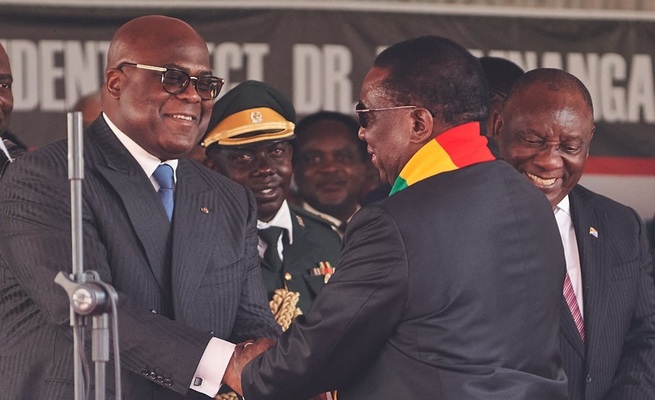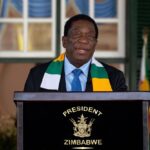
In a highly anticipated move, Congolese businessman and opposition leader Moise Katumbi officially launched his presidential campaign on Monday, signalling his return to the political arena after being blocked from running by the previous regime five years ago.
The campaign kick-off took place in the city of Kisangani, just a day after his main rivals, President Felix Tshisekedi and opposition figure Martin Fayulu, commenced their own election campaigns ahead of the crucial December 20 vote.
During his rally, Katumbi wasted no time in criticizing President Tshisekedi’s track record, particularly focusing on the situation in the volatile eastern region of the country, where the Congolese army has been engaged in battles against rebel groups, including the M23. Katumbi accused the president of relying on foreign mercenaries instead of prioritizing the welfare of the military and police forces, though he did not provide specific evidence to support his claims.
Addressing the crowd, Katumbi vowed to improve the conditions of the soldiers and bolster the strength of the republic’s armed forces. “We’re going to add a bonus for our soldiers because we have a very strong republican army that has to finish the war,” he declared, emphasizing his commitment to national defence.
Taking aim at President Tshisekedi’s insinuations the day before that some opposition candidates were backed by Rwanda, Katumbi firmly dismissed the allegations. Rwanda has faced accusations of supporting and arming the M23 rebels, but the Rwandan government has consistently denied such claims.
Among the attendees at Katumbi’s rally were numerous young people who expressed their eagerness for change. Disillusioned with unfulfilled promises of security, job creation, and infrastructure development, they voiced their dissatisfaction with the current government. Abdullah Simba, one of the rally participants, stated, “They’ve done nothing good; that’s why we’re asking this government to pack its bags and leave.”
Katumbi’s previous attempt to run for president in 2018 was thwarted by the government of then-President Joseph Kabila, who cancelled his Congolese passport while he was abroad. The 2018 election ultimately saw Tshisekedi declared the winner after Kabila relinquished power under international pressure following his 18-year rule. Fayulu contested the results, claiming victory, but his challenge was unsuccessful.
With the change in leadership and the ascension of President Tshisekedi, Katumbi’s passport was returned, enabling him to return from exile in London to Kinshasa.
While some critics have raised questions about Katumbi’s eligibility for the presidency, alleging that his father was not a Congolese citizen, a top court dismissed a recent lawsuit seeking to block his candidacy.
As the campaign season gains momentum, all eyes are on the Democratic Republic of Congo as the nation prepares for a pivotal election that will shape its political landscape for years to come.











